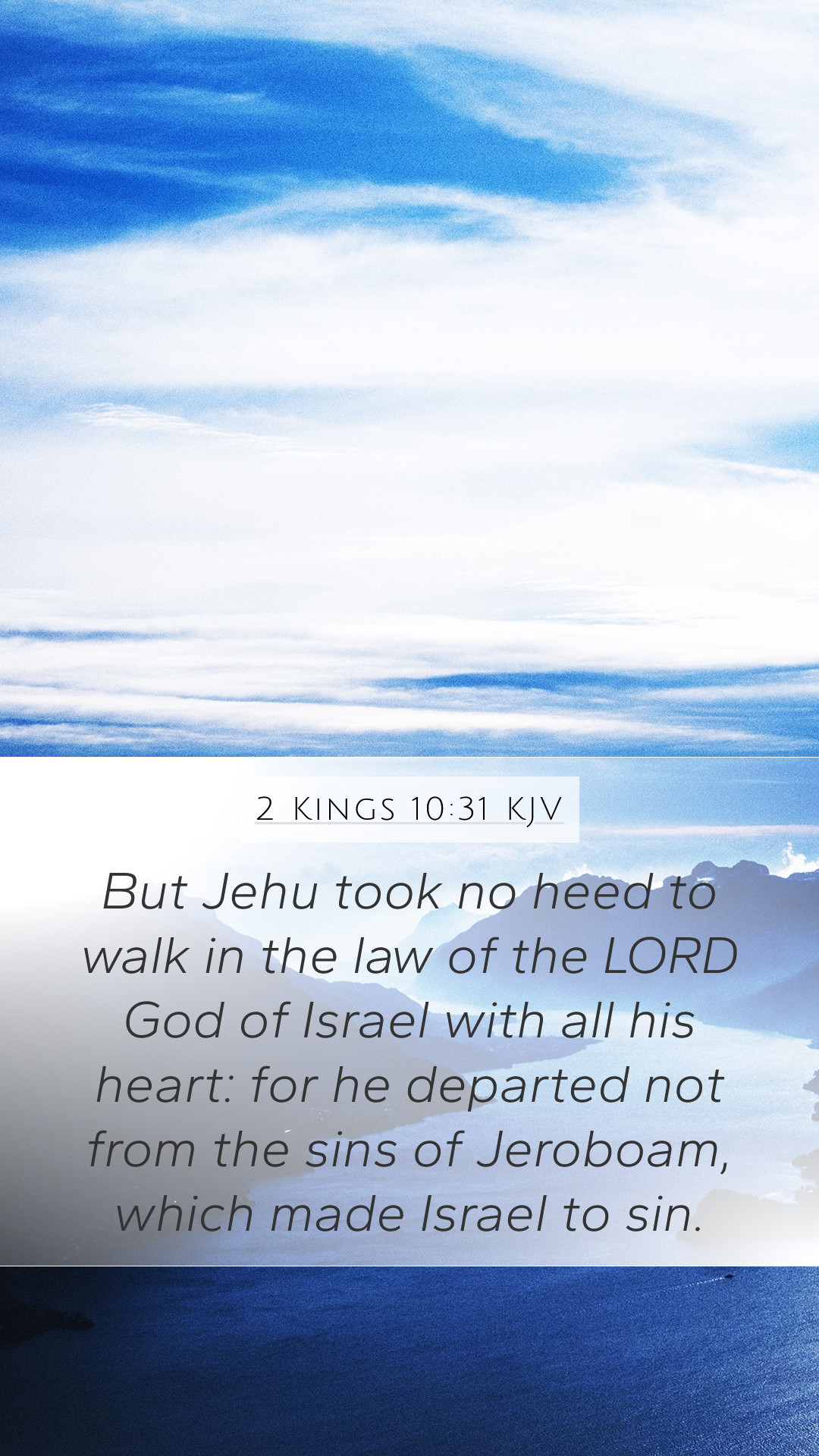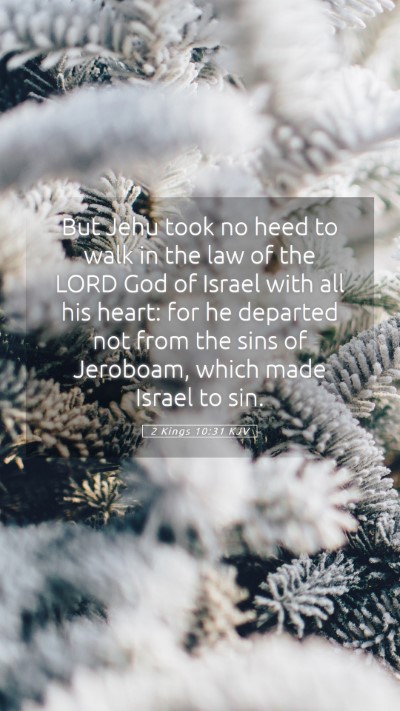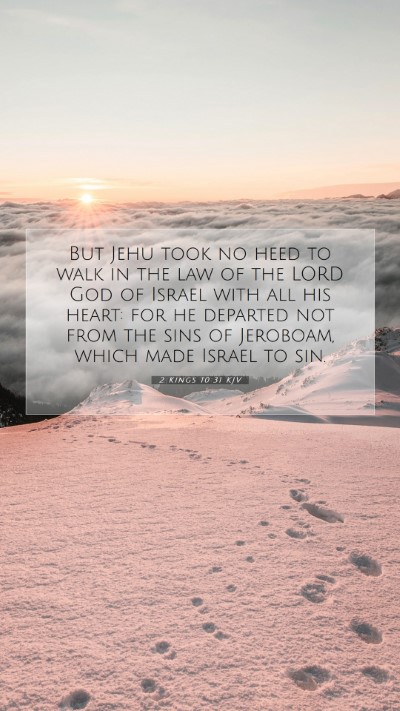Understanding 2 Kings 10:31
Verse: "But Jehu took no heed to walk in the law of the LORD God of Israel with all his heart: for he departed not from the sins of Jeroboam, which made Israel to sin." (2 Kings 10:31, KJV)
Verse Explanation
This verse serves as a critical reflection on King Jehu's reign and his faithfulness—or lack thereof—towards God. It captures the essence of Jehu's leadership style and decisions that shaped the spiritual landscape of Israel during his rule.
Interpretation and Commentary
Matthew Henry's Commentary
Matthew Henry notes that Jehu's failure to fully align his actions with God's law illustrates a common theme found throughout Israel's history. Despite Jehu's successful eradication of Baal worship and his zeal for God’s cause, he did not entirely forsake the sins of Jeroboam, particularly the sin of idolatry that had plagued Israel since the division of the kingdom. Henry emphasizes that partial obedience is counted as disobedience in the sight of God.
Albert Barnes' Commentary
Albert Barnes points out that Jehu's lack of diligence in following the law of God reveals the ongoing struggle of the nation of Israel with idolatry and moral failure. He provides a historical context, explaining how Jeroboam established calf worship, which became a significant stumbling block for Israel. Barnes articulates that Jehu's mixed legacy highlights the importance of wholehearted devotion to God's commandments.
Adam Clarke's Commentary
Adam Clarke delves deeper into the implications of Jehu’s actions. He argues that even though Jehu was chosen to bring judgment upon the house of Ahab and rid Israel of Baal worship, his own failures demonstrate the difficulty of leading a nation toward spiritual renewal when foundational issues of sin remain unaddressed. Clarke also notes that Jehu's decisions ultimately reflected a political maneuvering instead of genuine faithfulness to God.
Key Themes and Lessons
- Partial Obedience: This verse underscores the principle that partial adherence to God's commandments does not equate to faithfulness. It serves as a reminder that God desires our whole heart and loyalty.
- Legacy of Sin: The reference to the sins of Jeroboam demonstrates how past disobedience can cast a long shadow, affecting future generations and leaders.
- Influence of Leadership: Leaders play a critical role in guiding others spiritually, and Jehu's failures depict the weight of leadership in the context of faith.
Biblical Cross References
- 1 Kings 12:28-30 - The origin of Jeroboam's sins.
- 2 Kings 9:6-7 - God's call for Jehu to execute judgment.
- 2 Kings 17:21-23 - Reflecting on the sins of Israel and their consequences.
Applying the Verse to Daily Life
As we engage in Bible study groups and online Bible study resources, 2 Kings 10:31 challenges us to reflect on our own hearts and our commitments to God. Are there areas of our lives where we practice partial obedience? This verse encourages thorough self-examination and dedication to living out one’s faith with integrity.
Conclusion
2 Kings 10:31 serves as an essential piece for understanding the complexities of leadership, the dangers of incomplete faithfulness, and the lasting effects of sin within a community. This verse, therefore, not only contributes to our biblical exegesis but also serves as a meaningful guide for applying Scripture in our lives today.


